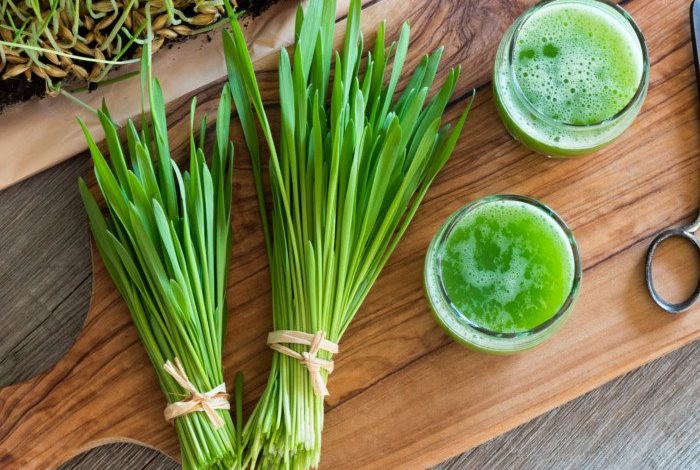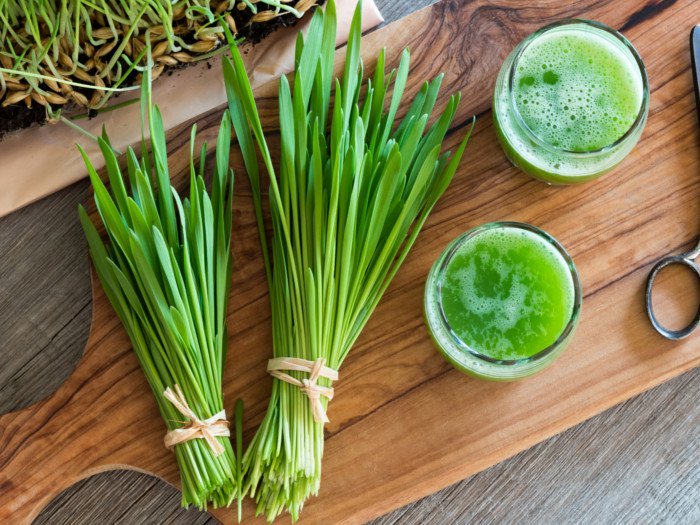HEALTH BENEFITS OF BARLEY GRASS (BARLEY LEAVE)


Barley, a member of the grass family, is a major cereal grain grown in temperate climates globally. It was one of the first cultivated grains, particularly in Eurasia as early as 10,000 years ago. Barley grass is a common ingredient at juice shops and health stores, frequently appearing alongside other greens like kale, spinach, and wheatgrass.
It is also known as barley leaves and barley greens, barley grass is the leaf of the barley plant. It has been studied extensively for its beneficial health effects and is often featured in green juices and supplements.
Although fresh barley grass can be tricky to find, it’s available in other forms, including powders, juices, tablets, and gummies.
Table of Contents
Nutrients
- Barley grass is rich in a variety of important nutrients.
- Dried barley grass, in particular, is a great source of fiber, boasting nearly 3 grams per tablespoon (10 grams).
- Plus, each serving of barley grass contains a good amount of vitamin A, a fat-soluble vitamin that regulates immune function, cell growth, and vision.
- It’s also high in vitamin C, which plays a central role in everything from skin health to wound healing to oral health.
- It provides vitamin K as well, an essential micronutrient that’s needed for blood clotting, bone formation, heart health, and more.
- Lastly, it’s rich in polyphenols and flavonoids. These compounds act as antioxidants to reduce oxidative stress and protect against chronic disease.
HEALTH BENEFITS
1. Support heart health
Adding barley grass to your diet is a great way to support heart health.
According to one older study in 36 people with diabetes, taking 15 grams of barley leaf extract for 4 weeks decreased the oxidation of LDL (bad) cholesterol, which is a risk factor for heart disease.
What’s more, in an older animal study, rabbits fed barley leaf essence experienced decreased levels of total cholesterol and triglyceride levels, compared with a control group.
Barley grass also contains compounds like saponarin, gamma-aminobutyric acid (GABA), and tryptophan, all of which have been linked to decreased blood pressure, reduced inflammation, and improved heart health.
2. May promote weight loss
Barley grass is low in calories but high in fiber, making it a great addition to a healthy weight loss diet.
Fiber moves through your body slowly, keeping you feeling fuller for longer to curb cravings and decrease hunger. In fact, several studies have found that increasing your intake of fiber could boost weight loss.
For example, one study in 252 women associated each gram of fiber consumed daily with 0.5 pounds (0.25 kg) of weight loss and 0.25% less body fat over 20 months.
Similarly, a 6-month study in 345 adults with overweight or obesity showed that those who ate more fiber lost more weight and found it easier to stick to their prescribed diet.
3. May balance blood sugar levels
Some studies suggest that barley grass could help you maintain healthy blood sugar levels.
This may be thanks to its content of insoluble fiber, a type of fiber that doesn’t dissolve in water. It’s speculated that increasing your fiber intake could reduce blood sugar levels and improve insulin sensitivity, making it easier for your body to use insulin effectively.
Nevertheless, studies on the effects of barley grass specifically are limited, and many are outdated. More research is needed to determine how consuming this plant could affect your blood sugar levels.
For any important information please contact us Email GadgetsNg info@gadgetsng.com
[Button id="1"]




mail order pharmacy india https://indiaph24.store/# reputable indian pharmacies
buy prescription drugs from india